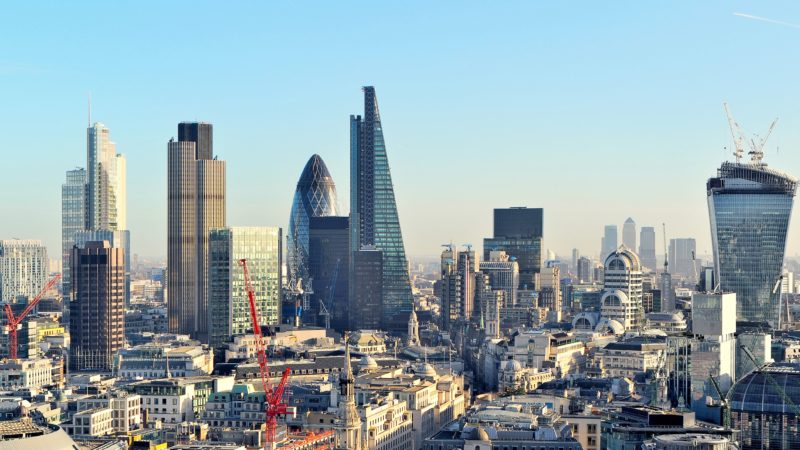And acting on this neo-liberal view, the Tory government are all too happy to cut their taxes.

The elites have long manufactured consent for their preferred policies by making enticing statements, through subtle pressures and even moral blackmail. The suggestion by former Deputy Prime Minister Damian Green, what is already being dubbed as “Dementia Tax 2” is the case in point.
He wants ordinary workers to pay more in income tax and an additional 2% in National Insurance contributions to fund social care of senior citizens.
Green’s proposals seek to enrol people to Tory policies as everyone wishes to see better social care and dignity for senior citizens. However, the proposals advance a Tory agenda of forcing ordinary people to pay more for their social rights.
Green’s proposals will hit the low, average and middle earners whilst the rich, as usual, will dodge taxes though convoluted avoidance schemes.
The poorest 10% of the UK households already pay on average 42% of their income in direct and indirect taxes compared to the richest 10% who pay on average 34.3% of their income in direct and indirect taxes.
The crisis in social care and healthcare has been manufactured by the government as it has prioritised welfare of corporations and wealthy elites.
If the government wanted to invest more in social care and healthcare it could easily do so by tackling the leakages of tax revenues and reversing cuts for the rich. Here are a few examples.
Her Majesty’s Revenue and Customs estimates that around £34bn of tax revenues a year remain uncollected due to avoidance, evasion and other factors.
Other studies estimate the lost tax revenue losses to be around £58.6 billion a year.
Even these estimates are likely to understate the leakage of tax revenues as they do not take adequate account of the profits shifted by corporations from the UK to low/no tax jurisdictions through complex corporate structures and artificial transactions relating to interest payments on intragroup loans, royalty payments, management fees and other dubious practices.
Corporations directly benefit from the availability of an educated and healthy workforce. Society collectively takes care of individuals suffering from work related illness, injuries, stress and psychological disorders; as well as taking care for those damaged by corporate products.
However, the government has reduced the responsibility of companies. The current headline rate of corporation tax is 19% compared to 28% in 2010 and will decline to 17% in April 2020. Cuts to corporation tax rates announced between 2010 and 2016 are estimated to have reduced revenues by at least £16.5bn a year.
The top rate of income tax for incomes over £150,000 per annum was reduced from 50p per pound to 45p in April 2013. For the period 2013/14 to 2017/18, this cut put additional £554,000 in the pockets of those earning over a million pounds a year. For the same period, the higher rate reduction reduced the tax take by £8.6bn.
The wealthy have long been able to avoid inheritance tax through the use of trusts, business property relief and other devices. Rather than tackling it the government has granted more tax concessions.
The inheritance tax rate is 40% but subject to exemptions. The first £325,000 of an estate is free of inheritance tax. This can be supplemented by an additional £100,000 at a nil rate for 2017/18, rising to £175,000 by 2020/21.
This means that a couple can pass up to £1 million tax-free to their heirs. The government estimates that for the period 2017-21 the above measures will reduce tax take by £2.63bn. The biggest beneficiaries are likely to be Tory voters living in million pound houses.
Capital gains generally accrue to the wealthy. For the tax year 2017-18, the UK levies a basic rate of income tax on taxable income of up to £33,500 (£31,500 for Scotland), 40% on taxable incomes between £33,501 and £150,000 (between £31,501 and £150,000 for Scotland) and 45% for incomes above £150,000.
The basic rate of capital gains tax (CGT) been reduced from 18% to 10%, while the higher rate has fallen from 28% to 20%. The above CGT concessions will reduce the tax take for the period 2017-21 by £2.745bn.
The tax rate differentials have created opportunities to convert incomes to capitals gains and vice versa. If wealthy individuals succeed they can pay tax at 28% rather than at the marginal rate of 45%.
The latest court case of Lee & Bunter vs Commissioners for HMRC [2017] TC05757 shows how wealthy elites use offshore trusts and exploit international tax treaties to avoid CGT.
The soft words on social care conceal class politics that have shifted tax policies in favour of the rich and corporations and created a crisis in social care and healthcare. The resurrection of the Dementia Tax is continuation of the policies that expect normal people to either pay more or lose their social rights.
Rather than tugging at people’s heart strings, the government needs to first adopt progressive tax policies, address the leakage of tax revenues, reverse tax giveaways to the rich and corporations, tackle offshore avoidance/evasion, capital gains tax abuses, inheritance tax avoidance, end the tax perks for non-doms and tackle abuse of trusts, before asking normal people to pay more.
Prem Sikka is Professor of Accounting at University of Sheffield and Emeritus Professor of Accounting at University of Essex. He tweets here.
To reach hundreds of thousands of new readers we need to grow our donor base substantially.
That's why in 2024, we are seeking to generate 150 additional regular donors to support Left Foot Forward's work.
We still need another 117 people to donate to hit the target. You can help. Donate today.



